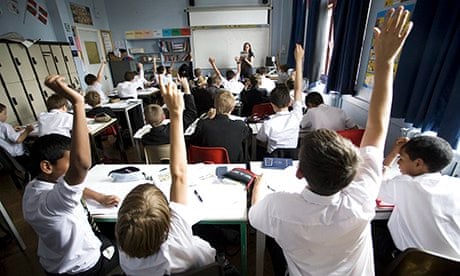Robert Plomin is a psychologist of international repute who has spent much of his life working on the genetics of developmental delays, intelligence and behaviour. His work is rigorous and extensively grounded in data from the Twins Early Development Study (TEDS), which he set up and which looks at a high proportion of the twins born in England between 1994 and 1996.
Plomin's most recent work shows that genes matter a lot for learning, accounting for 58% of variation in exam results. To many biologists this isn't that surprising. After all, genes matter for just about anything to do with us. The problem is that to many people saying that something is the result of genes is equivalent to saying that something is fixed, determined, and that there isn't anything you can do about it. To be fair to Plomin, that is not what he is saying but too often that is how it is interpreted.
Let me give an example. Type 1 diabetes (the sort of diabetes a person may have from childhood) is as much to do with genes as the speed of a child's learning. But nowadays, thankfully, we have treatments (insulin injections) that mean people with type 1 diabetes can live relatively normal lives. What once was a fatal disease of childhood is treatable.
Plomin and his co-author Kathryn Asbury argued in their recent book, G is for Genes, that our increasing understanding of genetics will enable us to tailor teaching to individual needs. Asbury and Plomin give the example of Down's syndrome children who do better at reading when they are taught using visual rather than auditory cues.
However, and this is where I part company from Plomin and many others keen to discern the genetic basis of human variation, you don't need genetics to tell you that some children learn better if instructions are visual and others if they are auditory. What you need are good teachers who respond to the needs of each learner.
I rather doubt that genetics will help that much in improving how we teach. What is more likely to help is careful analysis of why some children find certain learning activities difficult.
To give an example, thanks to a programme called Reading Recovery, we now know how the large majority of children aged six who have fallen behind with their reading can be helped. In a number of countries, including New Zealand, the US and the UK, a targeted intervention lasting a few months enables children with literacy issues to catch up. The programme is just the sort of personalised activity that Plomin wants – but it's nothing to do with genetics. Admittedly it is expensive. However, over the long term the cost-benefit analyses show, quite aside from the improvements to children's enjoyment of reading and their self-esteem, that the programme more than pays for itself. Eventually, good readers typically end up paying more taxes.
It's not Plomin's fault that many people think that "genetic" means "inevitable". We don't do a very good job of teaching genetics in schools. There are welcome signs that this may be changing.
